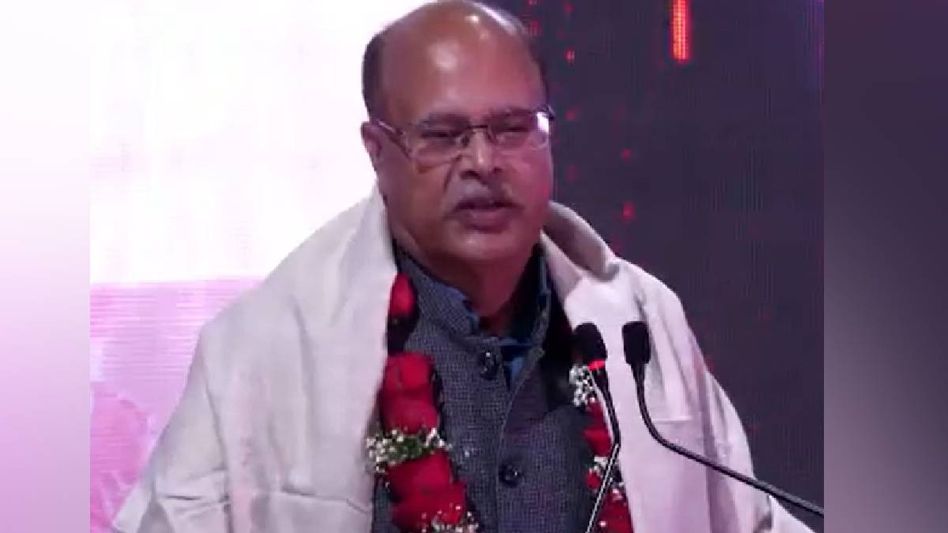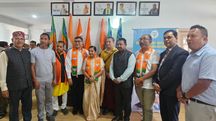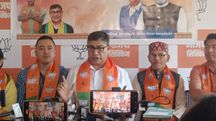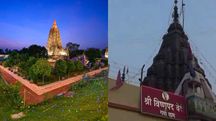Sikkim: Renowned poet Dr. Rajendra Bhandari calls for protecting culture and environment at literary festival
Among them, Dr. Rajendra Bhandari, a distinguished poet and associate professor at Sikkim State College, spoke on his deep connections with Sikkim and the importance of preserving cultural heritage.
 Sikkim: Renowned poet Dr. Rajendra Bhandari calls for protecting culture and environment at literary festival
Sikkim: Renowned poet Dr. Rajendra Bhandari calls for protecting culture and environment at literary festivalThe International Literary Festival 2024 commenced at Manan Kendra on October 26, featuring notable figures in Nepali literature. Among them, Dr. Rajendra Bhandari, a distinguished poet and associate professor at Sikkim State College, spoke on his deep connections with Sikkim and the importance of preserving cultural heritage.
Bhandari, who has lived in Gangtok for over thirty years, expressed his sadness over the Glacial Lake Outburst Flood (GLOF) and stated the emotional bond he shares with Sikkim. "What I love the most about Sikkim is that it is more organic than Darjeeling and Kalimpong; even the village people uphold their traditions and culture," he said.
Recalling fond memories from his time in Soreng, he shared a story about recording a local musician playing the madhal. "I lost that recording and it felt like I lost a piece of my life," he said.
As an educator, Bhandari advocated for a broader curriculum that extends beyond textbooks. "We must teach our students about their environment, traditions, and local flora," he urged, stressing the richness of Nepali culture and the necessity to pass it on to future generations. He pointed out the "Ministry of Loneliness" in London and similar trends in Japan, where people seek connection in an increasingly isolated world.
Dr. Bhandari articulated his concerns about contemporary global conflicts and said, "While nations like Russia and Ukraine are embroiled in war, we should be more worried about environmental destruction." He also spoke of the significance of protecting Mother Earth amidst climate change and environmental degradation, stating that societal bonds and traditions are essential for resilience against such challenges.
On the subject of artificial intelligence (AI), he offered a balanced view, recognizing both its benefits and potential pitfalls. "AI is a blessing and a curse. It can enhance our lives, but if misused, it could undermine our humanity," he cautioned. He referenced emerging technologies, such as AI-powered robots in China, urging careful consideration of their impact on literature and human connection. "AI can never replicate human emotions or love; we must ensure it complements rather than controls our creative expressions."
The festival aims to explore contemporary trends in Nepali literature and foster connections among writers, scholars, and literature enthusiasts from the region and beyond. With sessions scheduled for October 26–27, the event promises to be a vibrant celebration of culture and literary dialogue.
Also Read: Ex-Sikkim CM Pawan Kumar Chamling receives World Summit Literature Felicitation Award
Copyright©2025 Living Media India Limited. For reprint rights: Syndications Today









